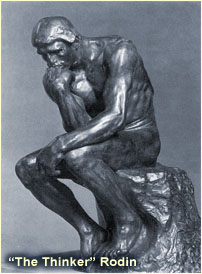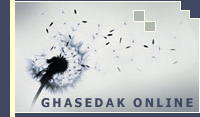Issue 6
Reza Rad
Philosophy Student, University of Toronto
 Mehmooni: the time honored Iranian tradition of gathering with family and friends for good food, good music and good times – a staple of Iranian life. If you happen to be studying philosophy at university, like myself, the festivities may also involve you being skewered like a piece of kobideh as a punitive measure for your decision to pursue the penniless enterprise of falsafa.
Mehmooni: the time honored Iranian tradition of gathering with family and friends for good food, good music and good times – a staple of Iranian life. If you happen to be studying philosophy at university, like myself, the festivities may also involve you being skewered like a piece of kobideh as a punitive measure for your decision to pursue the penniless enterprise of falsafa.
When making the dizzying rounds of warm embraces and greetings, which usually involve lipstick stamps on both cheeks and the oh-so predictable “my, you’ve gotten bigger”, I try with utmost effort to skirt the inevitable question: So, what are you studying in university? In fact, it’s usually something more along the lines of “So, what kind of engineering are you studying in university?”
According to many Iranians, after God formed the earth and proclaimed “Let there be light”, the Lord, in his unerring wisdom, made another universal and immutable proclamation: Let all male Iranians who are deserving of respect become engineers. This decree was subsequently amended with “…or doctors”. A decision on the proposed inclusion of “lawyers” is pending.
With tongue firmly in cheek, I usually answer “conceptual engineering”. Depending on the age and educational background of the respective relative, my mischievous remark, albeit completely sincere since philosophical reasoning is analogous to the basic principles of structural engineering, is hailed with a wink, nudge and light-hearted laugh or, to my amusement, with an oblivious “good for you”, sealed with an approving pat on the back. Typically, a half-serious inquiry into my love life ensues, “Be honest, how many girlfriends do you have?”
Recently though, I’ve decided to shelve the sarcasm and answer openly and courageously.
“Philosophy???”
“Baleh”
This is where brows furrow, estekans full of fragrant tea are placed back on their saucers and the trepidation of greying relatives is tempered with a calm poise, ready to edify and enlighten.
“Joohn-eh-delam, have you thought about what you’re going to do after?”
At this point, most of the guests who are sitting or standing in the living room cease their gossiping and taraoofing momentarily, perk their ears, tune into my interrogation and await my response.
The tension is as palpable as the waft of gohrmeh-sabzi and kabab emanating from the kitchen, tinged with the miasma of cologne and perfume hanging in the air, thanks to immoderate uncles and aunts.
“I’m not sure. Have profound thoughts about unemployment?”
My humor is lost on them. Faces etched with concern stare back, mercilessly. Some don’t seem too worried but that’s because I can’t make out their features under the layers of makeup.
“But dear, you have to think about the future and your finances. Your future wife and children” pleads an anonymous voice in the crowd.
Iranian etiquette dictates that I give ear to the advice and wisdom of my elders, ever ready to ponder their worldly truisms. That’s fine. But let’s get one thing straight: I can’t even keep a girlfriend for longer than a month so let’s not get ahead of ourselves and entertain any talk about my “future wife and children.” Obviously, I don’t dare voice the sentiment.
“Pesaram,” interjects a heavily accented voice from the dinning room around the corner “keep the philosophy for after work. Do your serious work nine to five and then your philosophy.”
“I say don’t even bother with such silly things” advises the dutiful hostess while refilling the empty estekans scattered around a mountain of fruit teetering in a bowl festooned with flowery foliage.
Silly?
Therein lies the problem: a status-driven mentality that ridicules any vocation or pursuit that doesn’t generate abundant wealth. In no way do I want to denigrate engineering and medicine. They are challenging and noble disciplines that play an incredibly vital role in any civilized society. However, there are other branches on the tree of knowledge.
While in the hot seat, I want to dig at their hypocrisy, how they always go off about Iran’s great poets and philosophers when they’re trying to convince their non-Iranian friends that Iran isn’t a Third-World nation or how all of Islam’s great thinkers have been Persian. I want to explain to them that philosophy isn’t trivial, light-hearted conjecture about the meaning of life or how many angels can dance on the head of a pin; rather, it is a serious enterprise that undergirds all scholarly and practical investigations; it is not so much a body of knowledge as a systematic and disciplined investigation of the most general and vital questions that concern all thoughtful human beings at one time or another as well as a focused, rational analysis of the foundations and methodologies of the empirical sciences. It is the trunk of the tree of knowledge. Its tools are logic and reasoned examination, not whimsical speculation and grand pronouncements. And yes, I won’t be able to land a lucrative job right after graduation but so what. My main aim in life is to do something I enjoy, not to live in Orange County. And if you claim that philosophy is useless, well, you’re inescapably engaging in philosophy.
Instead of articulating my grievances, I pacify them with the next best thing.
“Well, I’ll probably go to law school”
The tension dissipates and everyone breathes a collective sigh of relief.
“Now that’s a good plan” they compliment.
Moments later, the guests are invited to the dining room to witness the kingly feast, so beautiful in its display that one feels guilty for eating such a work of art. Among the many dishes of rice, stews and fresh herbs sits half-a-dozen skewers of kobideh. Forgetful of proper dinner decorum, I dash for the kobideh to sate my hunger for all things grilled. I never thought I would empathize with a piece of food but as the steamy kobideh rolls down the skewers it’s not much of a stretch for me to feel for its ordeal.












